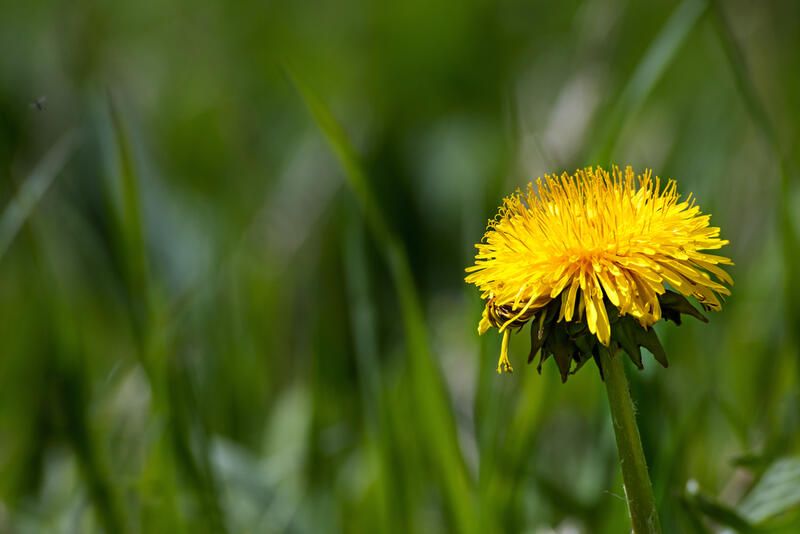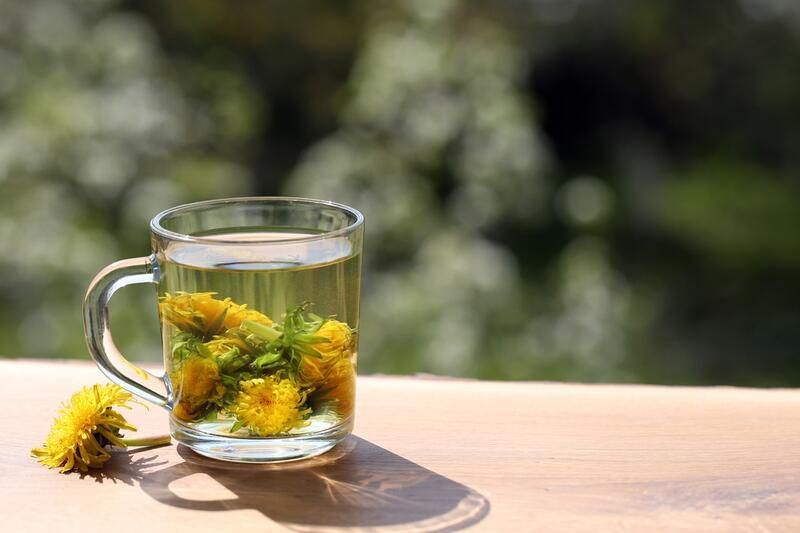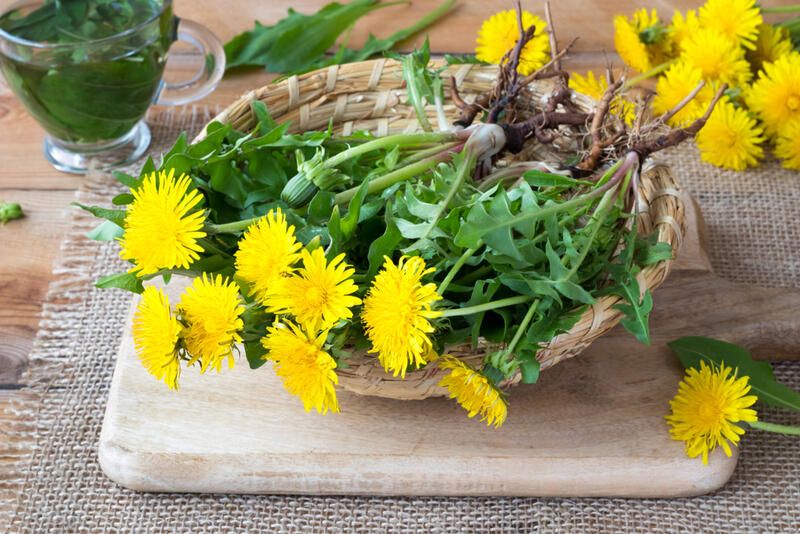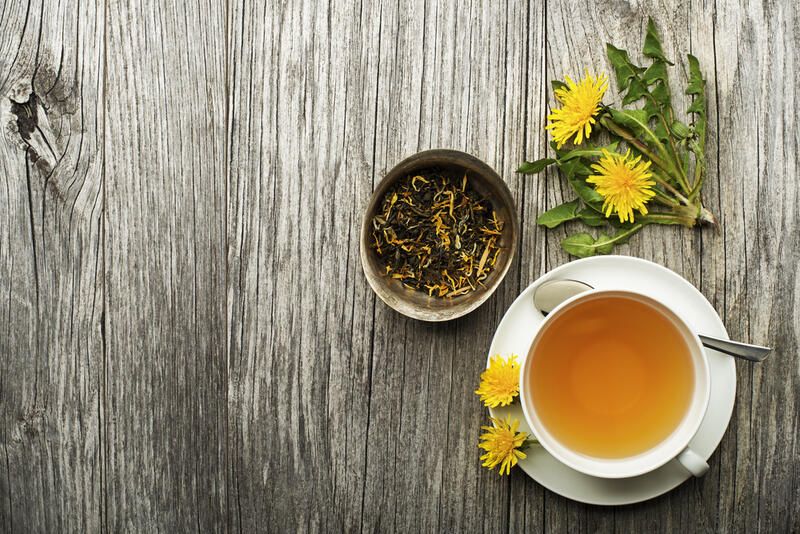
Dandelion Benefits You Didn't Know About: Health Benefits
Published: 27/03/2023 | Updated: 20/07/2023
Dandelions have a reputation for being a weed that grants wishes as well as an inconvenience on lawns. But did you know that dandelion root is loaded with minerals and has several health advantages, just like dandelion greens and dandelion tea?


How may dandelion root be used? In addition to being low in calories, this plant is high in fiber, antioxidants, and vitamins K, A, and C. According to a study, it may even help the liver operate, lower cholesterol levels, and stop the spread of cancer.
Dandelion is not only widely accessible, easy to include in your diet, and bursting with a distinct, peppery flavor, but it is also rich in many vitamins and minerals that support a strong immune system.
What is a Dandelion?
Yellow blossoms can be found on dandelion plants. The most prevalent type of this plant, Taraxacum officinale, is found all over the world.
Dandelions are regarded as herbs by botanists. The dandelion's roots, flowers, stems, and leaves are all used medicinally.
Dandelion Nutrients
Although dandelions are typically written off as just a troublesome weed, they could be useful to your kitchen and medicine cabinet. Dandelion plants have a variety of edible parts, including their roots, leaves, seeds, and flowers.
The root and leaves, which are both stuffed with health-promoting elements, can be used to make everything from dandelion tea to very healthy salads. This plant contains resveratrol, curcumin, silymarin, and silibinin, among other vitamins and antioxidants, in addition to potassium, magnesium, zinc, iron, and choline.
Historical Significance
Dandelion root has a long history of usage in traditional medicine, just as other roots like burdock and ashwagandha. In actuality, dandelion's use as a natural treatment dates back to ancient China in 659 B.C. It was consumed raw or turned into a juice or tonic, and it was also utilized in Welsh, Arabic, and European medicine.
The dandelion has historically been used for everything from liver treatment to improving digestion. Some Native American tribes used the dandelion leaf and root as a pain reliever while others applied the leaves topically to soothe sore throats after steaming them.
Why are dandelions referred to as "pee the beds" occasionally? These plants are known as "pee-the-beds" in some nations, including Scotland and France, due to their natural diuretic properties, which can result in increased urination.

Dandelion Benefits: Health Benefits of Dandelion Root
What impact does dandelion leaf extract have on the body? Here are some additional benefits of dandelion root that research has revealed to us:
Antioxidant Properties
Free radicals' damaging effects are countered by antioxidants. Free radicals are normally produced by the human body, but they harm us by speeding up aging or the development of some diseases.
Beta-carotene, an antioxidant that aids in cell protection, is present in dandelions. According to research, carotenoids like beta-carotene are essential for minimizing cell damage.
Other forms of antioxidants including flavonoids and polyphenols are also abundant in dandelion flowers.
Might Help Kill Cancer Cells
Dandelion root may be helpful in the prevention and treatment of some cancers, including liver cancer, leukemia, pancreatic cancer, breast cancer, esophageal cancer treat kidney disease, and prostate cancer, according to several studies.
For instance, a 2011 study from Canada used the dandelion extract to treat skin cancer cells and discovered that it began killing cancer cells within 48 hours after treatment.
In another study published in Oncotarget, it was discovered that dandelion root extract could eliminate 95% of colon cancer cells in just two days.
Reduces Cholesterol Levels
Dandelions contain bioactive substances that could either lower blood sugar levels and one's cholesterol levels.
Dandelion extract has shown promise in both in vitro and in vivo studies for lowering blood lipid levels. Lipids such as triglycerides and cholesterol might be a part of this.
Although additional research is required, people can likely use dandelion to cure excessive cholesterol.

Reduce Blood Pressure Levels
Studies on dandelion's potential to lower blood pressure are scarce, despite occasional claims to the contrary.
Dandelions are used in traditional herbal medicine for their diuretic properties since it is thought that they can purify particular organs.
In Western medicine, diuretic drugs are used to get rid of extra fluid from the body, which may reduce blood pressure and may assist lower blood pressure.
Potassium, another component of dandelion, is known to lower blood pressure in people with pre-existing elevations. As a result, this plant's potassium content may indirectly affect high blood pressure.
Interestingly, this result holds for any potassium-rich food consumed as part of a healthy diet, not just dandelion.
Normalize Blood Sugar Levels
Some research points to the presence of substances in dandelion plants that may aid in blood sugar regulation.
In 2016, several scientists hypothesized that the antihyperglycemic, antioxidative, and anti-inflammatory characteristics of dandelion could aid in the treatment of type 2 diabetes. But, more research and investigation are necessary before drawing any firm conclusions.
Can Promote Liver Health
The dandelion extract may offer protection against some liver diseases, illness, and damage, according to several animal studies.
A study on animals revealed that it mitigated liver impairment in mice given sodium dichromate, a substance intended to cause liver harm.
Additional research on animals has suggested that dandelion extract may lessen the amount of excess fat that is stored in the liver and protect it from oxidative stress.

Fights Bacteria & Supports the Immune System
Together with a host of other potential health benefits and advantages, dandelion root has antibacterial and antiviral characteristics that can help halt the spread of viruses and germs that cause disease.
According to a study from Ireland that was published in Phytotherapy Research, dandelion root was particularly efficient against certain of the bacterial types that cause staph infections and foodborne illnesses.
Dandelion root may be a helpful natural remedy for assisting the immune system in fending off bacterial infections, but additional research is required.
Support Healthy Bones
The medicinal plant taraxacum officinale is a fantastic source of vitamin K, a crucial ingredient that is essential for the health of bones. Lower intakes of vitamin K have been associated with an increased risk of fractures and decreased bone density. This is because this vital vitamin increases levels of a particular protein needed to help create strong bones.
Calcium, which contributes to the strength of bones and teeth by forming their structure, is another ingredient in dandelion.
Can Aid in Weight Loss
Though the evidence isn't conclusive, some study suggests that dandelion chemicals and weight control may go hand in hand.
According to some researchers, dandelion may help people lose weight by enhancing glucose metabolism and lowering fat absorption. This hypothesis has not yet been validated by science.
The dandelion extract may help with weight management by lowering fat absorption, according to a study done on mice.
In a different study on mice, it was discovered that the dandelion chemical chlorogenic acid decreased body weight, decreased fat storage, and changed the amounts of specific proteins involved in weight management.

Can Improve Digestive Health
Traditional medicine frequently used dandelion to relieve constipation and enhance digestive health.
A prior study on animals discovered that rats given dandelion extract experienced significantly higher rates of stomach contractions and emptying.
The prebiotic fiber inulin, which has been demonstrated to lessen constipation and encourage the flow of food through the digestive tract, is also abundant in the dandelion root.
Also, dandelion greens may increase your intake of fiber since they contain more than 3 grams of fiber in every cooked cup (105 grams). Fiber promotes bowel regularity and guards against several digestive disorders, such as diverticulitis and hemorrhoids.
High Fiber
Dandelion roots are a fantastic source of fiber and are particularly high in inulin, a soluble fiber type.
Fiber has been linked to several health advantages, particularly in terms of controlling blood sugar levels. Fiber helps decrease the absorption of sugar into the bloodstream since it passes through the body undigested, which can enhance long-term blood sugar regulation.
Fiber can help prevent a wide range of digestive problems, such as constipation, stomachaches, hemorrhoids, gastroesophageal reflux disease (GERD), and stomach ulcers, in addition to helping to maintain stable blood sugar levels.
Promotes Skin Cells
A substantial amount of antioxidants are included in each serving of dandelion, which helps shield skin cells from harm, delay the onset of aging, and keep you feeling and looking your best.
Moreover, 2015 in vitro study from Canada revealed that protecting skin cells from damaging UV rays might be accomplished by rubbing dandelion (Taraxacum officinale) extract onto the cells.
Also, some studies suggest that dandelion may have potent antibacterial qualities that can help stop bacterial growth and avert skin diseases.
Dosages
Numerous products contain dandelion, including tinctures, liquid extracts, teas, tablets, and capsules.
Both grocery stores and backyards are rife with dandelions. While it is okay to collect and utilize dandelion flowers from your yard, you should make sure to stay away from places where pesticides or weed killers have been sprayed and wash your hands well.
Pull up all of the stems that the blooms may be clinging to and then dig a little deeper into the soil to collect the roots. Before using, thoroughly wash the roots to ensure that all dirt has been removed.

Supplement Dosages
Several pharmacies and health stores sell dandelion extract and dandelion supplements and tablets. If you choose to take dandelion as a supplement, be sure to seek a trustworthy brand with few additives and fillers.
The majority of dried/powder supplements include between 500 and 1,500 mg of dandelion root extract per serving, although there is no set suggested dosage for dandelion root capsules.
Consume four to ten grams of tea made from fresh dandelion leaves each day. If using dandelion tincture as a supplement, take 0.5 to 1 teaspoon (2–5 mL) three times daily.
Always check the dosage guidelines for the particular medication you're taking because they can differ from brand to brand based on potency.
Is daily dandelion root use safe? It depends on how you're utilizing it and how you're feeling in general.
Dandelion tea is safe for most people to consume one to three cups per day. Start drinking dandelion tea with a lesser dose and gradually increase it for best results to gauge your tolerance and avoid any unwanted side effects.
Recipes
Dandelion greens can be used in soups, salads, and pasta dishes, while the blooms of the plant can be used to make dandelion wine or dandelion jelly.
Many different dandelion recipes call for the plant's roots, but many people prefer to brew dandelion root as a pleasant tea or calming alternative to coffee.
Both coffee and dandelion root tea are healthy, caffeine-free beverages that can get your day off to a good start. Also, the potential advantages of drinking dandelion tea alone are comparable to those of the root, making it a simple method to get your fix in the morning.
Though there are numerous ways to prepare dandelion root tea, most recipes call for adding hot water to the root and letting it simmer for five to ten minutes before filtering. Just roast the root by baking it for 10 to 15 minutes at 350 degrees Fahrenheit before making dandelion coffee.

Possible Side Effects & Risks
Because of their low toxicity, dandelion plants are probably harmless for the majority of individuals, especially when eaten.
But dandelion isn't fully risk-free, take in mind that research is still quite restricted in this area.
Those who are allergic to ragweed or other closely related plants are more likely to experience adverse allergic reactions to this plant. Those with sensitive skin may also get contact dermatitis.
Older research suggests that dandelions may also interact with pharmaceuticals, such as certain antibiotics, anticoagulants, and blood sugar treatments. Before consuming dandelion, be careful to talk to a doctor if you're taking any prescription drugs.


